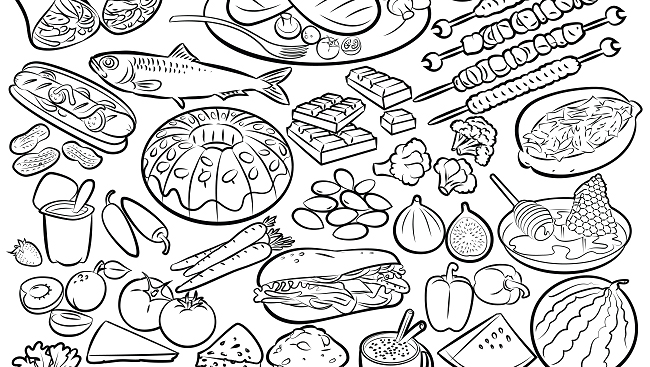Why Can’t We Resist Comfort Food?
- Published1 Aug 2023
- Author Dina Radtke
- Source BrainFacts/SfN

The brain circuitry driving you to eat an entire box of chocolate chip cookies is the same circuitry that allowed our ancestors to survive. These primal impulses for high caloric intake are the “default wiring” driving our food decisions, and they often overpower our better judgment.
Tamas Horvath is the chair of the Department of Comparative Medicine at Yale University. He has been researching the brain mechanisms behind eating for over 30 years, and he spoke to BrainFacts.org about the neuroscience of comfort food cravings.
What is comfort food, and why is it comforting?
Comfort food varies based on the individual. The type of food that comforts you is shaped by your upbringing, the stressors in your environment, how you learn to handle those stressors, what type of event triggers your eating behavior, and what you grow up eating to make you feel better, among other factors. Research suggests even the way a woman eats during pregnancy impacts the eating habits of the offspring. Whatever you are eating changes the chemical concentrations in your brain, and the result is that you feel better. I find fried chicken comforting because that’s what I ate growing up. Someone else might find carrots to be comforting. If you were looking at it from a perspective of statistics, most people would probably be comforted by high-calorie, high-fat, high-carbohydrate foods. But conceptually, it’s not about what’s in the food. It’s what it does to you and how you individually respond to it.
Carbohydrates and fats impact the circulating levels of hormones, such as ghrelin, leptin, insulin, and hormones like glucagon-like peptide (GLP). Those molecules have an impact on the nervous system, which signal a pleasurable feeling to the brain through the release of neurotransmitters, including dopamine and serotonin. This might create a comforting feeling in the short term, but when you continuously load this fuel into cells, specifically neurons or glial cells, the internal machinery of those cells is also overloaded. This impacts every aspect of the cell, including your DNA, and subsequently the circuitry made up of those cells.
What makes us crave comfort food?
The uncertainty of food availability is baked into our evolution. You might live in a society where food is abundant, but the brain-body system was constructed so you would eat as much nourishing food as possible in any given setting so you can store energy in the form of fat. Your body typically wants high-quality, calorie-dense, palatable foods that will allow you to gain weight and assure your survival at a time of food uncertainty. If you don’t have food tomorrow, or the day after, or the weeks after, this will ensure your survival. For this reason, this so-called “normal” phenotype of innately eating in moderation is actually quite rare.
My research has focused on the hypothalamus, which is located at the bottom of the brain and produces feelings of hunger or satiety. Hunger-driving neurons in this region are situated outside of the blood-brain barrier, so they’re exposed to all sorts of signals coming from the rest of the body. They provide a great window to the brain about what is going on in the periphery. These “hunger neurons” are the dominant neurons, and they suppress the neurons driving satiety. So the default wiring of your brain is to drive hunger, which makes sense because if it were the other way around, you would not seek out food that your body needs to survive.
During times of stress, the adrenal glands release hormones called corticosteroids, which may have action at multiple brain sites, such as the hypothalamus, to promote hunger and potentially drive the pursuit of calorie-dense, palatable foods. But even though stress is commonly mentioned as a driver of comfort food cravings, many people actually eat less during times of stress. It depends on how you learned to cope with your environment. Situations with your family, your workplace, and any other circumstance in your environment impacting your moment-to-moment wellbeing and how you see your future to be in danger or not. So any given situation has the potential to affect your cravings in that moment — whether that means eating more or eating less.
We know that we shouldn’t eat comfort food in excess, but oftentimes we can’t help ourselves. What is going on in the brain when this happens?
There are many, many parts of the brain affected by craving and eating. Notably, the region responsible for cognitive control and decision-making — the prefrontal cortex — will often be slightly suppressed when we crave food and while we’re eating. You might know eating vast amounts of potato chips is against your best interest, but depending on the concentration of these chemical messengers in your body and brain, the drive to eat may overpower your cognitive control. Knowing how you should and shouldn’t eat to maintain a healthy body is inferior to the drive you have from this brain circuitry.
BrainFacts.org welcomes all your brain-related questions.
Every month, we choose one reader question and get an answer from a top neuroscientist. Always been curious about something?
Please submit your question by filling out this form.








